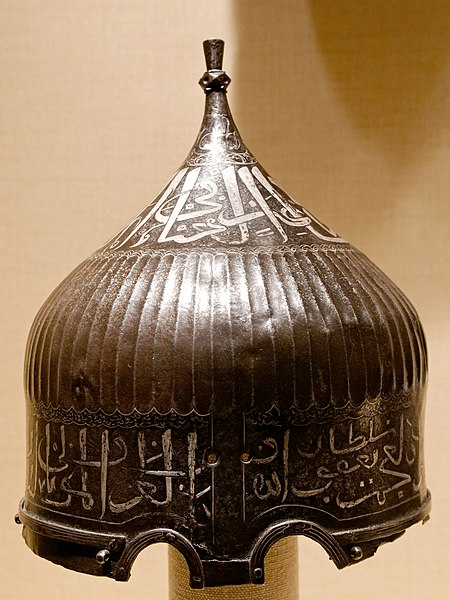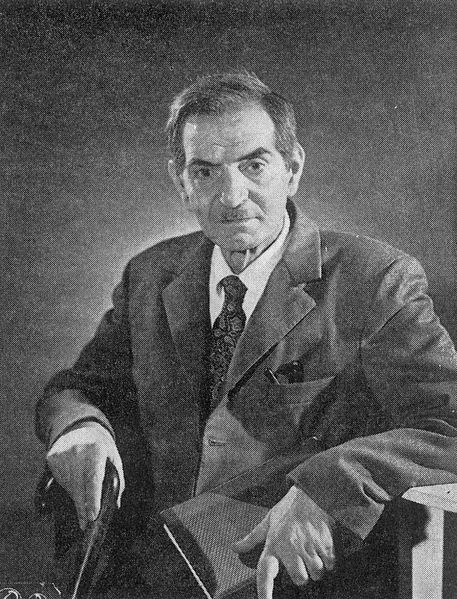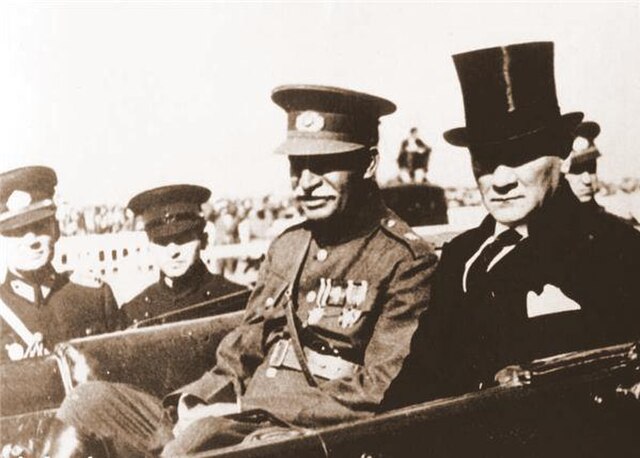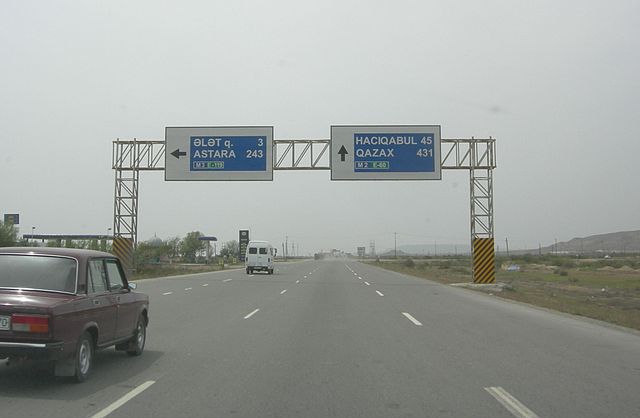Yaqub b. Uzun Hasan, commonly known as Sultan Ya'qub was the ruler of the Aq Qoyunlu from 1478 until his death on 24 December 1490. A son of Uzun Hasan, he became the ruler of the dynasty after the death of his brother Sultan Khalil. The borders of Aq Qoyunlu dynasty remained stable during his reign. In his book Alam-Aray-i Amini, Fazlallah Khunji Isfahani praised him as a decent successor of Uzun Hasan. Ya'qub received praise from other historians for supporting poets and scientists.
Sultan Ya'qub Aq Qoyunlu in a folio from the Majalis al-ushshaq, dated October/November 1552
Firman of Ya'qub concerning land rights given previously by the deceased Qara Qoyunlu ruler Jahan Shah to two sons of Sayyid Ni'matullah. Created in Iran
Helmet inscribed in the name of Sultan Ya'qub, located in Metropolitan Museum of Art.
Azerbaijani or Azeri, also referred to as Azeri Turkic, is a Turkic language from the Oghuz sub-branch. It is spoken primarily by the Azerbaijani people, who live mainly in the Republic of Azerbaijan, where the North Azerbaijani variety is spoken, and in the Azerbaijan region of Iran, where the South Azerbaijani variety is spoken. North Azerbaijani has official status in the Republic of Azerbaijan and Dagestan, but South Azerbaijani does not have official status in Iran, where the majority of Azerbaijani people live. Azerbaijani is also spoken to lesser varying degrees in Azerbaijani communities of Georgia and Turkey and by diaspora communities, primarily in Europe and North America.
Mohammad-Hossein Shahriar, Iranian Azerbaijani poet, who wrote in Azerbaijani and Persian.
Reza Shah and Kemal Atatürk during the Shah's official visit to Turkey in 1934. Reza Shah spoke in South Azerbaijani while Atatürk spoke in Turkish, and the two leaders managed to communicate with each other quite effectively.
Azerbaijani-language road sign.






